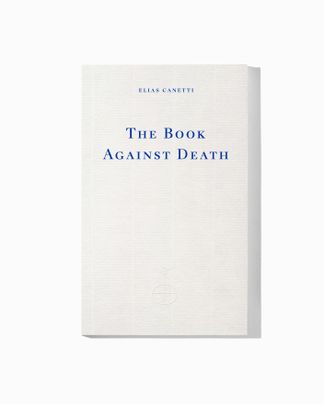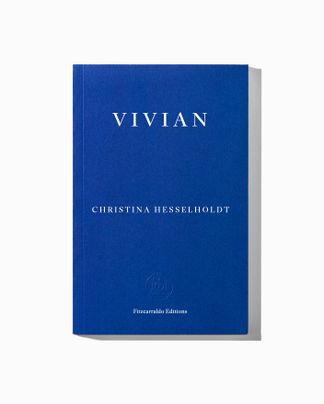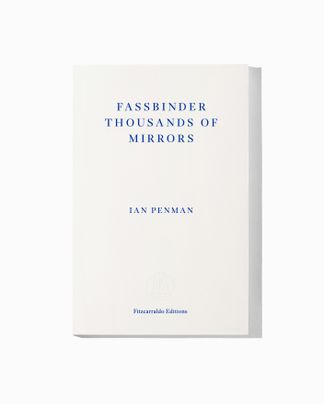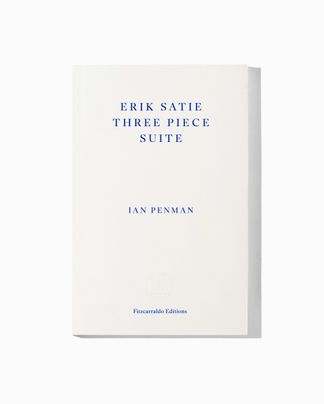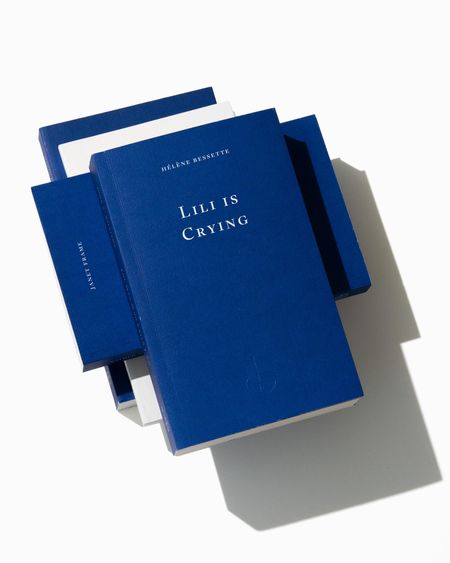In 1920, Virginia and Leonard Woolf’s Hogarth Press published Maxim Gorky’s Reminiscences of Tolstoy and it was recognized almost immediately as one of the few masterpieces of modern biography. ‘It is one of the most remarkable biographical pieces ever written,’ writes Leonard Woolf in his autobiography. ‘It makes one hear, see, feel Tolstoy and his character as if one were sitting in the same room – his greatness and his littleness, his entrancing and infuriating complexity, his titanic and poetic personality, his superb humour.’ In 1934, the book was expanded to include Gorky’s memoirs of two other great Russian literary figures, Anton Chekhov and Leonid Andreyev. Almost a hundred years later, Reminiscences of Tolstoy, Chekhov and Andreyev is reissued in a superb new translation by Bryan Karetnyk.
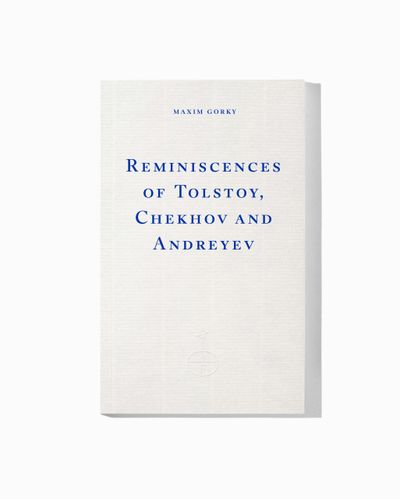
Reminiscences of Tolstoy, Chekhov and Andreyev
Translated by Bryan Karetnyk, with an introduction by J. M. Coetzee
Fitzcarraldo Classic No. 11 | French paperback with flaps, 208 pages
Published 25 September 2025
Reminiscences of Tolstoy, Chekhov and Andreyev
Translated by Bryan Karetnyk, with an introduction by J. M. Coetzee
I .
LEO TOLSTOY
Notes
i .
The thought that plagues him, markedly, more than others is that of God. It seems at times not even to be a thought, but a violent resistance to something that he senses above him. He speaks of this less than he would like, but thinks of it – always. This is hardly an indication of senility, some presage of death: no, it sooner stems, I believe, from his terrific human pride. Somewhat from a sense of humiliation, too – for, being Leo Tolstoy, it is humiliating to submit one’s will to a streptococcus. Were he a scientist, he would surely formulate ingenious hypotheses and make great discoveries.
ii.
He has remarkable hands – unsightly, gnarled by varicose veins, and yet imbued with a special expressiveness and creative power. Da Vinci must have had hands like these. Such hands may accomplish anything. Sometimes, while talking, he will move his fingers, gradually closing them into a fist, and then, suddenly opening it, utter some fine, weighty word. He is like a god: not a Sabaoth or an Olympian, but a kind of Russian god, who ‘beneath a golden linden sits upon a maple throne’ – and, though not especially majestic, is yet perhaps more cunning than any other god.
iii.
Sulerzhitsky he treats with a woman’s tenderness. Chekhov he loves like a father; in this love one discerns the pride of a creator, whereas Suler evokes in him nothing but tenderness, a constant sense of curiosity, a fascination of which the old sorcerer never seems to weary. Doubtless, there is something a little absurd about this, like the love of an old maid for a parrot, a pug or a cat. Suler is an enchanting wild bird from some strange, unknown land. A hundred men like him could change the face, not to mention the soul, of a provincial city. Its face they would smash, and its soul they would fill with a passion for unbridled, brilliant devilment. Loving Suler is easy, uplifting, and it angers and surprises me to see how women neglect him. And yet, perhaps their negligence deftly conceals some wariness of him. Suler is unreliable. Who can say what he will do tomorrow? Throw a bomb, maybe, or join a troupe of wandering minstrels. He has enough energy for three lifetimes. His fire burns so bright that sparks seem to perspire from him, as from overheated iron.
One day, however, Tolstoy grew terribly angry with him. Suler, who is prone to anarchism, speaks often and feverishly of the freedom of the individual, and Tolstoy forever baits him. I recall Leopold extracting from somewhere a slim little pamphlet written by Prince Kropotkin. Inspired by this, he spent the whole day regaling everyone with the wisdom of anarchism, philosophizing devastatingly.
‘Enough, dear boy, give it a rest,’ said Tolstoy peevishly. ‘Like a parrot, you repeat one thing and the same – freedom, freedom – but where is the sense in it? After all, if you achieve freedom in your meaning of the word, as you imagine it to be, what then? In the philosophical sense, an abyss; in life, in practice, you will become a wastrel, a vagabond. What, then, will connect you, a free man in your sense of the word, to life, to others? Take birds – they are free, yet still they build nests. You, however, deign not to build a nest, satiating your sexual urges wherever you please, like a dog. Think seriously on this, and you shall see – you shall sense that, in the end, freedom is but a vast emptiness.’
He frowned angrily, fell silent a moment, and then added, quieter now:
‘Christ was free: so, too, the Buddha; and they both took upon themselves the sins of the world, both entered voluntarily into the bondage that is earthly life. Nobody, but nobody could have gone further. So what is there for you, for us? We all seek freedom from duties to our neighbour, but it is the very cognizance of these duties that has made us human – and, were it not for this cognizance, we should live like wild animals…’
He laughed:
‘Here we are, discussing how to lead a better life. The profit in it is not great, but then neither is it little. And there you go arguing with me and getting so angry that your nose turns blue, and yet you will not strike me: you will not even curse me. If, however, you were truly free, you would have killed me – just like that.’
And once again, after a silence, he added:
‘Freedom is when everything and everyone is in agreement with you; but then you do not exist, for it is only in collisions and contradictions that we all of us feel something.’
iv.
Goldenweiser played us some Chopin, which prompted the following thoughts from Tolstoy:
‘A certain German princeling once said, “Where you want to have slaves, there you must cultivate music as much as possible.” This is a true idea, a true observation, for music dulls the mind. The Catholics understand this better than anyone; our priests will never reconcile themselves to hearing Mendelssohn played in a church. A priest from Tula once assured me that even Christ was not Jewish, despite being the son of the Jewish God and having a Jewess for a mother; all this the priest acknowledged, but still he said: “That cannot have been.” I asked of him: “But how?” He shrugged and answered: “Therein lies the mystery.”’
(…)
‘Maxim Gorky’s Reminiscences of Tolstoy, Chekhov and Andreyev, now published in an elegant new translation by Bryan Karetnyk, unites three sketches penned by the most prominent and influential writer of the early Soviet Union…. All three are vivid and compassionate, providing a record not only of the writers but of their historical moment.’
— Sophie Pinkman, New Statesman
‘In turn lightning vivid and darkly impassioned, his ruthlessly honest recollections put the reader right there in the room, gate-crashing wild nights on the vodka with Russia’s literary masters. Gorky was a terrific noticer…. [I]n this fascinating book Gorky’s memory speaks on.’
— John Quin, The Tablet
‘One of the most remarkable biographical pieces ever written.’
— Leonard Woolf
‘[F]ull of vivid flashes and glimpses into the soul of the Russian genius…. Gorky’s book is particularly valuable because it reveals not only Tolstoy as he saw him, but unconsciously Gorky reveals himself also.’
— New York Times
‘Portraits of three writers as the self-portrait of a fourth: Gorky’s Reminiscences of Tolstoy, Chekhov and Andreyev is a quick-handed plein-air masterpiece.’
— Joshua Cohen, author of The Netanyahus
‘Like all the Russian writers, Gorky had a marvellous eye for the physical reality that intrudes upon thought and feeling. But where other Russians, even Tolstoy, have only one pair of eyes, Gorky is like a hundred-eyed man who sees dozens of things happening at every blink and who forgets none of them.
— V. S. Pritchett
‘Gorky’s picture comes nearer than the others to completeness, because he makes no attempt to include everything, to explain everything, or to sum up all in one consistent whole. Here there is a very bright light, here darkness and emptiness. And perhaps this is the way in which we see people in reality.’
— Virginia Woolf
‘A profound and intimate portrait of literary genius, Maxim Gorky’s Reminiscences of Tolstoy, Chekhov and Andreyev offer a rare and deeply personal glimpse into the inner lives of three towering figures of Russian literature. More than a moving tribute from one great writer to his peers, this is a rich tapestry of philosophical inquiry, psychological insight and social commentary. Gorky explores questions of faith and doubt, the bonds and rivalries between creative minds, and the turbulent backdrop of pre-revolutionary Russia. At once an ode to the beauty of Russian literature, a study in human connection and a meditation on writing life itself.’
— Lea Ypi, author of Indignity
Maxim Gorky was born in 1868 in Nizhny Novgorod. After a grim childhood and some years of wandering he began to write stories and by his thirties had become world-famous both for fiction and plays. He became involved in revolutionary activity against the tsarist regime in Russia and had a confused, difficult relationship with the Soviet dictatorship, partly living abroad and yet becoming the USSR’s most feted and widely read author. He died in 1936 under suspicious circumstances and Stalin and Molotov were among the bearers of his coffin.
Bryan Karetnyk is a translator, writer and scholar of twentieth-century Russian literature and culture. He has translated several major works by writers including Gaito Gazdanov, Boris Poplavsky and Yuri Felsen, and is the editor and principal translator of the landmark Penguin anthology Russian Émigré Short Stories from Bunin to Yanovsky (2017). He writes regularly for the Times Literary Supplement, the Financial Times and the Spectator.
J. M. Coetzee was born in Cape Town in 1940 and educated in South Africa and the United States. He is the author of, inter alia, twenty works of fiction. In 2003 he was awarded the Nobel Prize for Literature. Currently he lives in Australia, where he is Professorial Research Fellow at the University of Adelaide.

